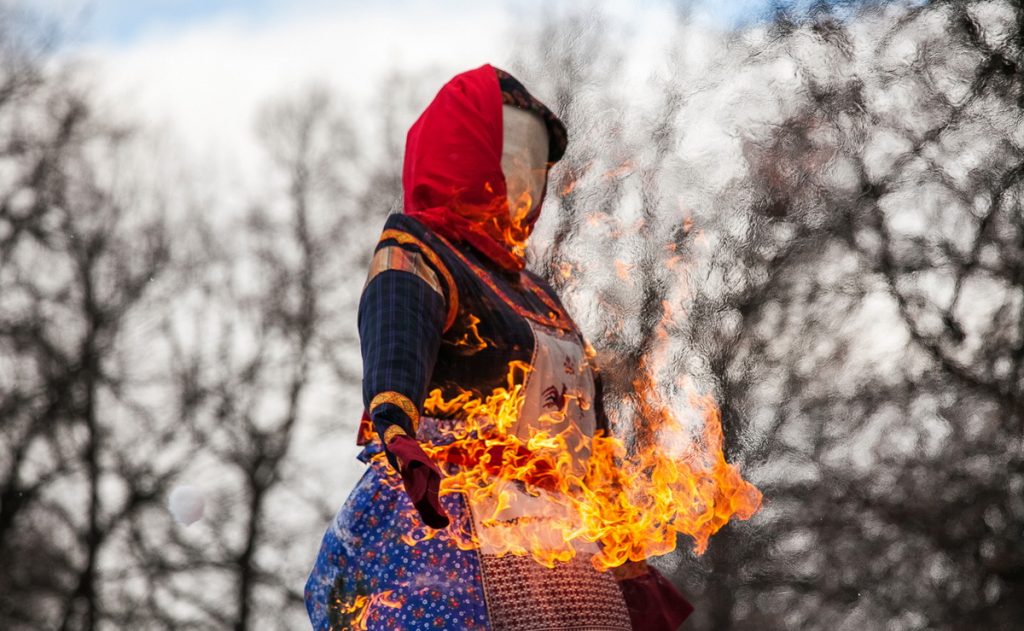Maslenitsa (“maslo” in Russian means butter) or Fat Tuesday, Mardi-Gras, Shrovetide is a celebration of the end of winter which is held for one week before the beginning of Lent. The traditional food is blini (pancakes) which symbolizes the sun. This year it is the week from March 4 till March 10. The week of Maslenitsa is divided into two parts. Narrow Maslenitsa includes the first three days, and this is the period when it was allowed to do household work. The rest of the week – Thursday, Friday, Saturday and Sunday – is called Wide Maslenitsa when all work is finished and people start to celebrate. Each day of Maslenitsa week has its own meaning and in this article we are going to talk about it.
Monday – “vstrecha” (встреча – meeting). On this day all the relatives visit each other and make blini. Young people create a big doll of straw with clothes which depicts winter and which will be burned on the last day of Maslenitsa.
Tuesday – “zaigrish”(заигрыш, from the verb “играть” – to play). Exciting day for young people because it was the best moment to find a match. The so-called “smotrini”when families meet each other and make wedding arrangements took place on this day.
Wednesday – “lakomka”(from the verb “лакомиться” – to enjoy food). On the third day there was a tradition to visit mother-in-law who cooked blini and other food for her son-in-law.
Thursday – “Razgul”(разгул – revelry). Public folk festivities begin which included sledding and other forms of winter entertainment, street shows, men were practicing in stand-up fights.
Friday – evening with mother-in-law. On this day, the son-in-law must invite his mother-in-law for blini otherwise it was a big sign of disrespect and a reasonfor a dispute.
Saturday – evening with sister-in law. Again, a family gathering of all the relatives. Wives cooked and demonstrated their culinary talent.
Sunday – Forgiving Sunday and farewell ceremony. The final day of Maslenitsa when you could ask for forgiveness for everything. In the evening people burnt the doll of straw and said goodbye to the winter. They sang and jumped over the bonfire. In Ancient Rus this week symbolized the revival of life.
As you can see, Russian culture and history is very rich and diverse as any other culture, and you have a chance to experience it. Start learning Russian language in the heart of St. Petersburg and we will try our best to help you to assimilate and get to know our culture better!
